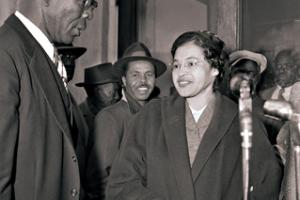The Ambitions of the Civil Rights Movement Went Far Beyond Affirmative Action
Time magazine
 Though the unions held themselves up as civil rights advocates, white workers often saw their black counterparts as a threat because they competed for the same jobs. In response, black workers formed coalitions to change unions from within. The Coalition of Black Trade Unionists, for example, was founded in 1972. One union stood out when it came to opportunity and access for black workers: the Brotherhood of Sleeping Car Porters with its significant black membership.
Though the unions held themselves up as civil rights advocates, white workers often saw their black counterparts as a threat because they competed for the same jobs. In response, black workers formed coalitions to change unions from within. The Coalition of Black Trade Unionists, for example, was founded in 1972. One union stood out when it came to opportunity and access for black workers: the Brotherhood of Sleeping Car Porters with its significant black membership.
 The March on Washington grew out of a clear understanding of the problems facing African Americans, and presented a discrete list of demands, including a comprehensive and effective civil rights law that would guarantee access to public accommodations, "decent housing, adequate and integrated education, and the right to vote." Also a "massive federal program to train and place all unemployed workers - Negro and white - on meaningful and dignified jobs at decent wages"
The March on Washington grew out of a clear understanding of the problems facing African Americans, and presented a discrete list of demands, including a comprehensive and effective civil rights law that would guarantee access to public accommodations, "decent housing, adequate and integrated education, and the right to vote." Also a "massive federal program to train and place all unemployed workers - Negro and white - on meaningful and dignified jobs at decent wages"
Spread the word